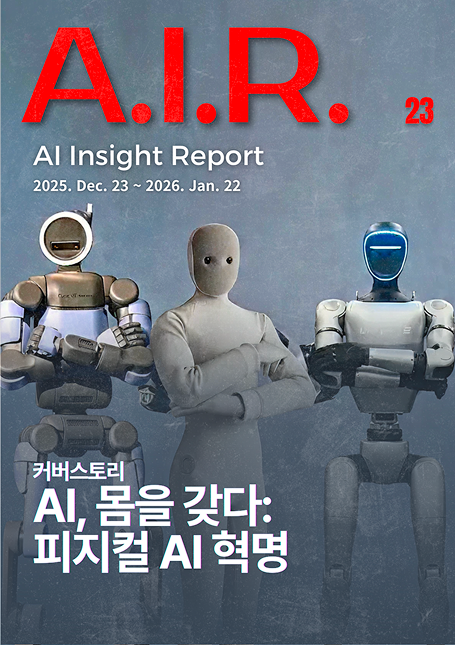S. Korea attracts global startups with incentives and support

The Korean government promises to support overseas Korean firms and relax work visa rules for non-Koreans. It will also introduce eased business regulations and fund-matching for foreign businesses.
South Korea's Ministry of SMEs and Startups has unveiled 'Startup Korea,' a comprehensive plan aimed at propelling the nation into the league of global innovation leaders. At the heart of this vision is the creation of a 2 trillion won ($1.5 billion) Startup Korea Fund, as announced on August 30.
This plan will serve as a blueprint outlining the nation's mid- and long-term startup policies. It also includes incentives and support measures to help global entrepreneurs start businesses in the nation with ease while relaxing visa regulations for global talent. The announcement took place during the 'Startup Korea Strategy Meeting,' presided over by President Yoon Seok-yeol at Cheong Wa Dae, the former presidential official office, in Seoul.

Pinning eyes on global Markets
A pivotal aspect of this initiative is the globalization of Korean startups and ventures. The government is committed to providing active support for Korean entrepreneurs establishing businesses abroad. To bolster this effort, the government will lay the groundwork for supporting overseas corporations founded by Koreans who demonstrate contributions to the Korean economy. Additionally, the introduction of a 'Global TIPS' program will pair startups securing investments from overseas VCs with government support.
Through the 2-trillion-fund-raising initiative, the government aims to foster five global top 100 unicorns by 2027. This strategy also aims to elevate Seoul into the ranks of the world's premier startup hubs, with an impressive 14.2 trillion won ($10.7 billion) in investment funds. Alongside nurturing local tech startups located outside the Greater Seoul area, the government will also encourage the formation of new funding totaling around 500 billion won ($377.8 million) by corporate venture capitals. The 2-trillion-won Startup Korea Fund will be jointly financed by the private and public sectors and will primarily invest in three areas: deep tech, globalization, and secondaries.

Support for global talent
In a bid to attract global talent and innovation, the government will simplify processes for foreigners looking to establish startups in Korea. It will relax criteria for issuing an E-7 visa, particularly for startups operating in industries with significant demand for specialized skills. The E-7 visa is most commonly required for foreigners to work in the nation. Furthermore, startup visas and funding will be granted to individuals showcasing technical and business acumen.
The government's vision also extends to education and collaboration. The proposed 'K-tech college' program aims to nurture outstanding students from developing nations, offering them software-focused education. These students will be given employment opportunities within the nation's vibrant startup ecosystem.
The Startup Korean scheme involves the establishment of 'Space-K,' a global startup hub fostering international communication and exchange in Seoul. To offer foreign entrepreneurs support, a 'Global Startup Center' will also be newly set up.
Striking balance
With a goal to promote balanced growth across the nation, the government will try to stimulate local investment and rejuvenate regional economies. Under the tentative name 'Local Space-K,' dedicated areas will be designed to serve as startup parks, fostering young talent and acting as centers for innovation. Furthermore, the government plans to forge a 'startup cluster' model in collaboration with private companies, universities, and research institutes. The establishment of regional angel investment hubs is also expected to invigorate investment in non-metropolitan areas.
Collaborative Efforts
Open innovation will be prioritized as the government's approach transitions from predominantly individual startup-focused policies to broader collaboration programs between conglomerates and startups. A specific focus will be placed on ten key areas including system semiconductors, bio-health, future mobility, eco-friendly environment and energy, robots, big data and artificial intelligence (AI), cybersecurity and networks, aerospace and marine, next-generation nuclear power plants, and quantum technology.
To encourage strategic investment in startups by major corporations, the government is contemplating regulatory eases, including the relaxation of limits on external investment and overseas investments by CVCs. At least two 'Global Innovation Zones' will be designated in the latter half of the year, designed to minimize hindering regulations, and foster rapid company growth. In line with these efforts, the government envisions constructing a startup regulation framework capable of predicting regulatory challenges in advance. This initiative might also involve introducing a regulatory moratorium for early-stage startups and expanding the regulatory guidance system.
“Relevant ministries have collaboratively prepared these comprehensive measures to foster 'Startup Korea,' through which ventures and startups drive economic growth,” said Startups Minister Young Lee, adding the ministry will spare no efforts in advancing the Korean startup market by fostering investments and nurturing competitive unicorns."
Related:
The South Korean workplace is experiencing significant transformations as ‘80s-born executives usher in a new era. Meet the '80s-born executives









